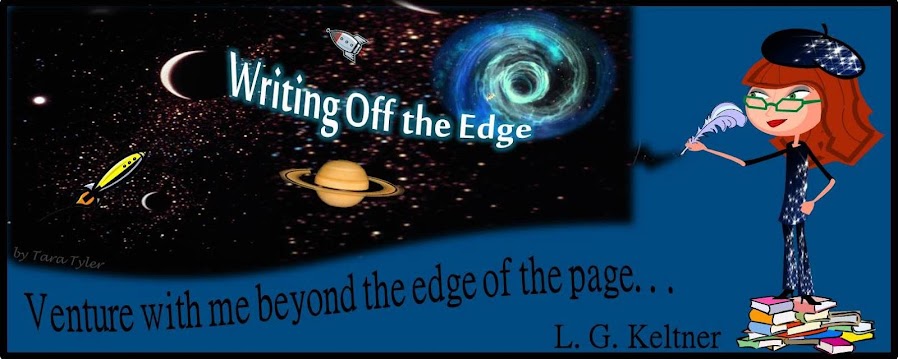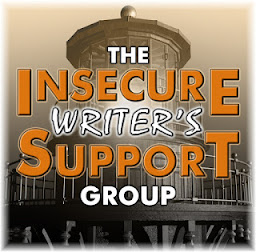Wednesday, December 2, 2020
The Insecure Writer's Support Group: December 2020
Wednesday, November 4, 2020
The Insecure Writer's Support Group: November 2020
It's the first Wednesday of the month, and you know what that means! Let's kick off another meeting of The Insecure Writer's Support Group. Our leader Alex J. Cavanaugh has assembled another great group of co-hosts: Jemi Fraser, Kim Lajevardi, Tyrean Martinson, Rachna Chhabria, and me!
Be sure to check out the IWSG website for great writing resources!
The optional question for this month is: Albert Camus once said, "The purpose of a writer is to keep civilization from destroying itself." Flannery O'Connor said, "I write to discover what I know." Authors across time and distance have had many reasons to write. Why do you write what you write?
That is an excellent question, and I love these quotes. I don't know if I feel competent to keep civilization from destroying itself (there's a lot of pressure there in that statement), but I can certainly relate to what Flannery O'Connor is saying here. Writing can certainly be a process of self-discovery. I use it as such all the time.
However, in seeking to answer this question for myself, I can't help but think of how I first started writing. I made my first attempt at writing a novel when I was six years old. It was awful, I think that goes without saying, but I was eager to put words on the page.
My parents were avid readers when I was growing up, and I emulated that. I also lived out in the country, and though I had half-siblings, I spent most of my childhood as the only child in the house. At least I had a gigantic backyard to keep me entertained. I used to stalk about the yard, weaving around trees and pretending I was on a grand adventure.
The moment I started learning how to write, I began to translate those imaginary adventures onto the page. Maybe it was the fact that I'd already fallen in love with reading. Perhaps I did it to keep myself entertained. Mostly likely, it was a combination of the two, and I've been writing ever since. I grew up as a writer.
So why do I write?
I write to be who I am.
That's my declaration. I wouldn't be me without writing. It's been such a formative part of my life that I can't see myself without it.
Why do you write?
Wednesday, October 21, 2020
WEP October Challenge-Grave Mistake
Into
the Earth
Sweat
beaded on Hank’s brow as he plunged the shovel into the earth. His muscles
strained as he lifted another mound of dirt from the growing hole and lofted it
onto the pile alongside him. The sun beat down on him without mercy as he
worked. This was the first week of October, when the weather was supposed to be
turning crisp and cool.
“Someone
must have left the gates of Hell open,” Hank muttered as he watched the moist
dirt yield to his shovel once more. Instead of being a crisp, fall day, it felt
more like the height of summer with temperatures nearing 90 degrees. Not the
kind of weather he wanted to be digging in, but he needed the money.
Taking
odd jobs helped to pay the bills. Hank tried not to think about his growing
pile of debt. It threatened to bury him alive.
He
shook his head, flinging some of the sweat droplets from his forehead. No, he wouldn’t
think about his money problems now. One of the main benefits of hard physical labor
was to temporarily forget about life and immerse himself in the moment.
And
so, he toiled away, flinging more and more dirt out of the way. Mrs. Morris,
the lady who hired him to dig this darned hole, wanted to install a little
reflecting pond beside her garden. It was the kind of unnecessary luxury he
couldn’t envision ever installing for himself, but to each his own.
He
was about three feet down when his shovel struck something hard. The reverberation
ran up both of his arms, jarring his entire body.
“Stupid
rocks,” he muttered.
Using
the tip of shovel to push the dirt away, he planned to dig up and cast aside
the problematic obstruction. A smooth white surface greeted him. Dropping the
shovel, he leaned down to grasp the rock with both hands and give it a good
yank.
His
lower back flared with pain as the rock refused to budge at first. Hank gritted
his teeth and gave it a second, mightier tug. The earth finally released it,
and he found himself face to face with something he’d never imagined.
Two
empty eye sockets stared blankly back at him. A slack jaw hung for a moment
before crashing to the ground by his feet.
A
skull. And this was no animal skull. It was human. No doubt in his mind about
that.
Stunned
beyond belief, he sunk to his knees and set the skull down beside him. His
hands frantically began pushing dirt out of the way, searching to see if there
were any more bones to be found. He couldn’t begin to articulate why, but some
dark curiosity had seized him.
Sure
enough, within minutes he’d found a fleshless hand. The bones were no longer
connected by living tissue, but the soil held them in place, making it
impossible to ignore what they meant.
Who
was this person, and why in the world were they buried here?
Hank
was so immersed in his own thoughts, he didn’t hear the footsteps approaching
from behind. He didn’t notice anything at all until he heard a slight gasp.
He
turned to find Mrs. Morris there, her hands clasped over her mouth.
Of
course she was horrified. Who wouldn’t be to find such a thing in their own
back yard? The older woman’s eyes grew wide as saucers as she peered down into
the hole.
“Mrs.
Morris, are you okay? Do you want me to call the police for you?” Hank asked.
Surely they would need to report this. It was going to be a pain, but he couldn’t
do anything about that.
She
shook her head. “I thought I buried him over yonder,” she muttered, pointing toward
the other side of the garden. “Just goes to show that the memory fades over
time. My mistake.”
Hank
stared at her for a long moment, the truth dawning on him slowly.
Too
slowly, as it turned out.
Mrs.
Morris already had the shovel in hand. When had she even picked it up?
He
started to back away, but she was already mid-swing. The metal connected hard
with the side of his head, and he crumpled where he stood.
The
world stopped making any kind of sense for a time. He couldn’t say how long, but
once he was able to form a coherent thought, Mrs. Morris stood in the hole
beside him.
No.
This was no hole. It was a grave, and it was about to be his, too.
Though
Hank’s vision was blurred, he could make out the edges woman’s deranged smile. She
leaned in closer, and Hank was overwhelmed by her putrid breath. If he wasn’t
so grievously injured, he might have wondered what she could have eaten to make
such a horrific stink.
Perhaps
it was better that he didn’t know.
“I
will say this,” she said. “It sure was kind of you to dig your own grave for
me. My back has been acting up something terrible lately. These old bones aren’t
as tough as they used to be.”
Bones.
Hank thought of that pile of bones he’d unearthed. The ones that were currently
resting beneath his injured body. He was going to decompose on top of them until
his bones comingled with those of this other man he’d never met.
A
few moments passed as Hank drifted in and out of consciousness. He was only
vaguely aware of the dirt raining down on him. In some distant part of his
brain, he realized with horror that she wasn’t even going to finish him off
before burying him.
It
won’t be my bills that bury me alive after all, he thought
bitterly.
More
dirt fell on top of him. It would take her a while to cover him completely. Bad
back, and all.
This
whole thing was a grave mistake. That morbid joke, a last taste of gallows
humor, carried him into the black for the final time.
Word Count: 1000
FCA
Wednesday, October 7, 2020
The Insecure Writer's Support Group: October 2020
Wednesday, September 2, 2020
The Insecure Writer's Support Group-September 2020
Wednesday, August 19, 2020
WEP August Challenge - Long Shadow
Monster
The sun is going down soon. I look to the west and see the hints of orange and red on the horizon. A bird sings in a tree nearby. It’ll be going to bed soon. I don’t want to go to bed, but I don’t have a choice. I’m only seven.
I smile. I don’t need to go inside yet, though. I have a little more time. Turning my back to the sun, I gaze down at the ground. My shadow stretches out in front of me, taller than two of me stacked on top of each other would be. I push myself onto my tiptoes to make it grow a little more.
With
a giggle, I hold my arms out over my head, curling my fingers so they look like
menacing claws on the grass. I let out a vicious snarl. “Rawr!” I stomp my feet,
hunching slightly so I look like a giant monster in an old movie.
Stomp.
Stomp. “Rawr!”
My
shadow keeps growing as the sun dips lower. The blades of grass become a forest
of trees. An ant skitters past one of my shoes. I wave my clawed hands, and the
shadow envelopes the tiny creature.
Run, little one,
run! I think as I continue to claw at the air.
The ant disappears under a fallen twig, and I move
on.
I’m large. I’m the biggest thing in the world. I pause
at a boulder that sits on one corner of a flower bed. It isn’t a boulder today,
though. No. It’s pointed top makes it a mountain. I stand beside it and
consider the possibilities.
“Rawr!” It takes little effort to climb it, and I balance
precariously on the tip. Raising my arms high over my head, I make my shadow
spread across as much of the yard as possible. I am gigantic. Cicadas drone in
the background as I savor my moment of triumph in the warm summer evening.
“Laura!”
My mom’s voice tears me from the moment, and I
scramble down from my perch. I can’t see her thanks to the hedge surrounding
the patio, but I know she’s waiting there by the door.
“It’s time to come inside!” she calls.
“I’m coming!” I reply.
I turn to make my way back to the house, my shadow
now invisible behind me.
Wednesday, August 5, 2020
The Insecure Writer's Support Group: August 2020
Wednesday, July 1, 2020
The Insecure Writer's Support Group: July 2020
Wednesday, June 17, 2020
WEP June Challenge-Urban Nightmare
This poem is the result of me trying to grapple with the world as we know it. Humanity has been through many times of struggle, and people have been proclaiming that it may well be the end of the world for a long time. And if not the end of the world, at least the end of life as we know it. I can see why people may be tempted to think that way, but I have to hope for something better. Giving in to despair solves nothing.
Poetry isn't my strongest suit, but it felt like the best avenue for self-expression at the moment.









